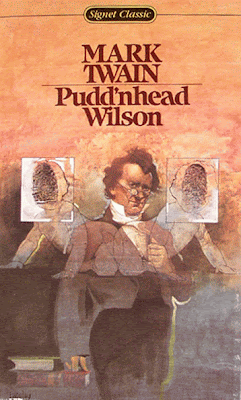I've had this book lying around for a long time, but I never read it until it was assigned in my International Mass Communication class, even though it's been a classic for fifty years. The novel is set in the fictional southeast Asian nation of Sarkhan. It was written before the Vietnam War, and proved eerily prescient concerning how and why the United States would lose that war. What is most frustrating is how the
United States continues to make the same foreign policy mistakes today.
Most significant is the theme that the majority of Americans who go to Sarkhan to help or work are woefully ignorant of what is required of them. These Americans are unable to understand the need to learn the Sarkhanese culture and language. They are unprepared to put forth the necessary effort and unwilling to make such a commitment. Many Americans in Sarkhan are more concerned with their own business interests than with sincerely helping the Sarkhanese. This collective approach culminates in an ineffective policy of throwing money at the problem regardless of the results, which are most often quite poor. The most alarming aspect of this mindset is the consummate arrogance that the American policies will work in spite of continued and overwhelming evidence to the contrary.
The reader shares the manifold frustration of those few characters who understand how to achieve results in Sarkhan. The powers-that-be are, for a variety of shameful reasons, by and large unwilling to accept these characters' simple, pragmatic solutions, despite the success they have achieved. Numerous characters remark on how simple it would be for America to win the hearts and minds of the Sarkhanese and drive out the communists, but America's continued unwillingness to be flexible in its approach only compounds their frustration. Certainly the irony of the novel's title is not lost here. Homer Atkins, the "ugly American", is one of these few people who understand how to interact productively with the Sarkhanese, and he does so with great success. Meanwhile, the attractive, rich and well-to-do continue to flog America's ineffective policies.
Although the authors were experts on the topic, the novel is not without its minor faults. The dialogue is stilted in places, particularly early on. But this is hardly unforgivable; the dialogue is not a focal point of the novel, and the accepted writing style for fiction was different fifty years ago, and continually changes. Additionally, the pacing is good, which helps overcome that particular weakness. The introduction of a new character nearly every chapter is unorthodox, but works fairly well as a means by which to portray the myriad examples of the various strategies of foreign diplomacy.
The novel is not a tremendously enjoyable read, nor is it supposed to be. The authors want the reader to feel the frustrations they feel, the frustrations that the few who employ effective methods feel. In sharing this frustration, the reader comes away from the novel with a clearer understanding of the situation, and with the knowledge that there are alternatives to the United States' ongoing policies of antagonism and alienation.
The Ugly American has become a timeless classic, and this is immensely regrettable. That the plain and simple explanations of how to and how not to achieve success in foreign policy have been and continue to be utterly disregarded by the United States government in spite of repeated failures and constant admonitions is nothing short of a travesty. Had the United States heeded the warnings of this book and changed their policies accordingly, the novel would certainly be left with little to say to a twenty-first century American audience. Until such a sweeping diplomatic overhaul occurs, however, The Ugly American will remain valuable to each succeeding generation.
HIGHLY RECOMMENDED







